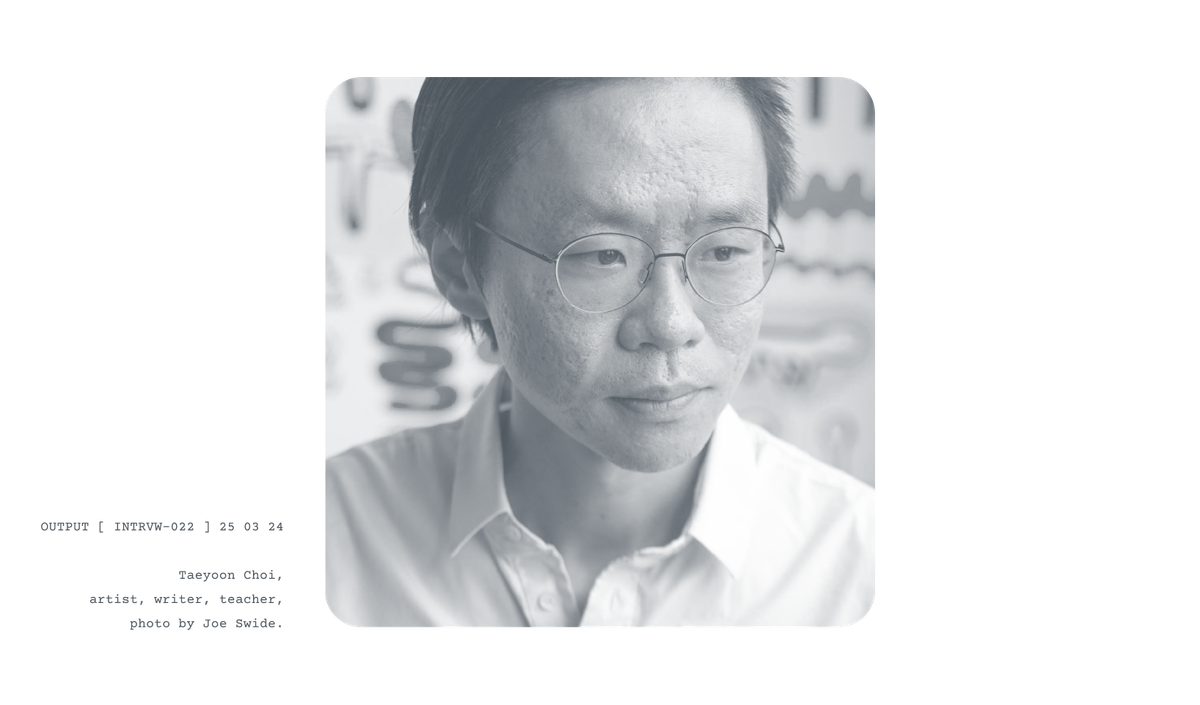Taeyoon Choi, Artist and Writer

Taeyoon Choi is an artist, writer and teacher working across poetics of science, technology, society, and human relations.
APOSSIBLE™ is a non-profit bringing psychologists, technologists, artists and creatives together to explore how technology can better support creativity and human fulfillment. In this ongoing interview series we’re discovering what people value, what makes their lives fulfilling, and what kinds of relationships to technology they already cherish.
1. What is a ritual, practice, or routine in your life that is important for your psychological wellbeing and/or fulfillment? Why?
It is only recently I began to understand my wellbeing and the sense of myself. One of the practice that helps me feel grounded is to think about things in long term view. When I am frustrated with the politics, my work or relationships, I try to look at them again with a 100 years timeline. Small things still matter, but I get to see things with more grace and humbleness.
2. What is a human-made creation that brings out the best in you? Why?
I am spending this hot summer without an Air Conditioner in my apartment. This is mostly due to the logistical reasons of having to move soon. I have been appreciating simple fans more than ever. They are simple, a rotor and blades that help air flow. I dislike Air Conditioners because they make me feel cold and allergic. Fans are fundamentally different from A.C. They make use of what is 'already here' instead of 'innovating, exploiting and exhausting' the resources out there.
3. When do you cherish the slow or hard way of doing something? Why?
I love how we still have just ten fingers. Twelve fingers would dramatically improve our typing speed. I love how we still write letters with pen on paper. That physical act of inscribing your motion into message is beautiful. I love how we still kiss, make love and use our bodies to communicate. This will never disappear, I hope.
4. What is something you appreciate or long for from the past? Why?
I am very concerned about e-waste. I wish we change our use of laptops and smartphones. What if each smartphones are passed on from one generation to another? Like how certain tools, heritage items, weavings were passed on from one family member to their sons or daughters. If my laptop is used by my great grandson, how will I take care of it? What if my smartphone was the same one used by my grandfather 50 years ago? What message will I tell my family about the things we hold as essential items?
